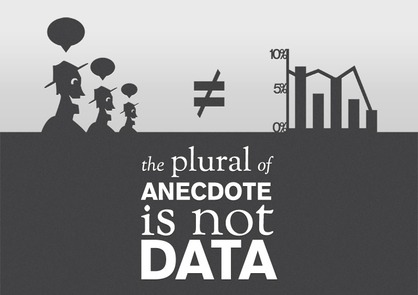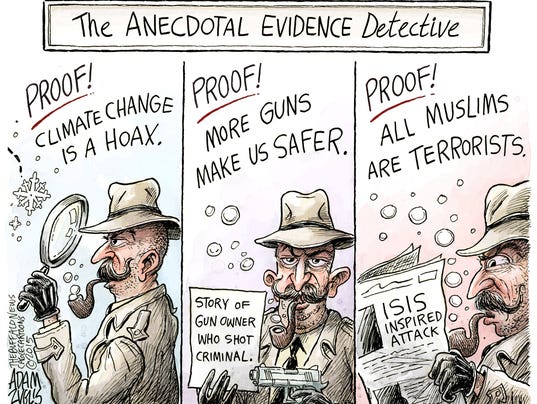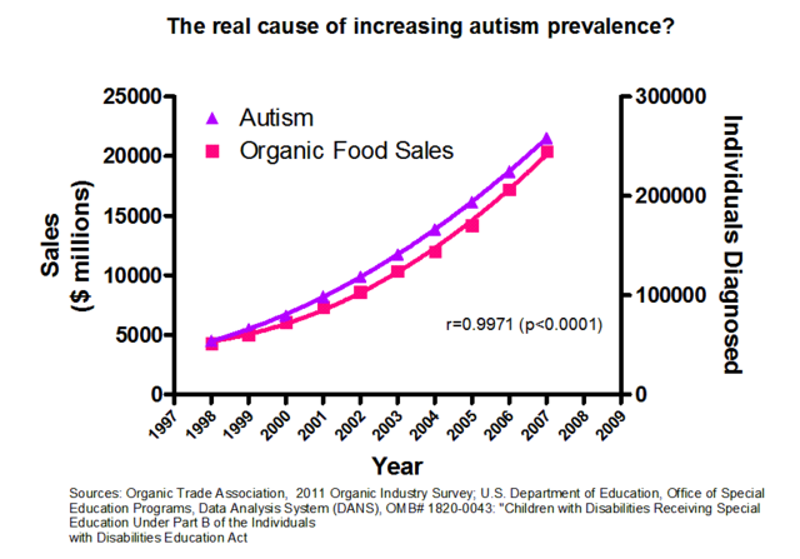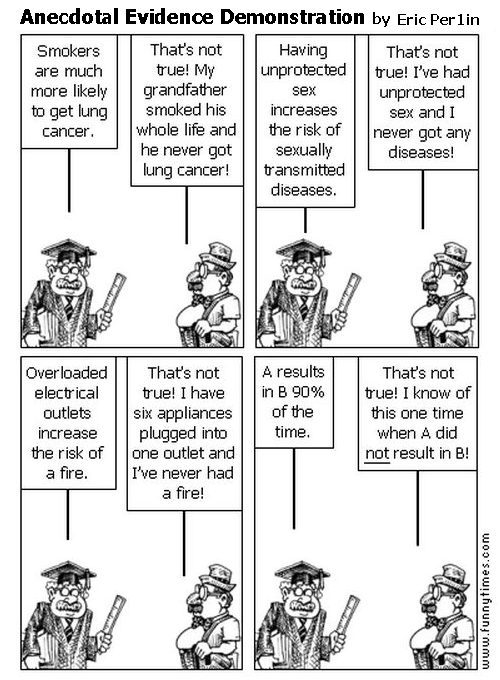How 'it worked for me’ irks me

I hear that phrase constantly from doing
what I do. I say cannabis doesn’t cure cancer; ‘it worked for me’. I say that
GMO’s cannot cause an allergic reaction by replacing genomes; ‘Well, it did for
me’. I say aloe vera doesn’t cure diabetes; ‘well it worked for me’. There is a
phrase in the scientific skeptical community; ‘The plural of anecdote is
anecdotes, not data’ – a sentence that resounds more truth that you will ever
know.
How many anecdotes make for data?
How many pieces of string make a full ball
of string? Well, how long are the pieces of string? What is defined as a ball
of string? Think about that in context; what makes for evidence? You have a
cold and you take an Echinacea tablet, your cold goes away and you put that
down to the tablet, right? Is it not highly likely that your cold will go away
on its own as your own anti-bodies fight off the virus, as opposed to a natural
remedy? An anecdote is a story, nothing really more. As humans, we find
anecdotes interesting and strive to see what works to cure the incurable. As scientists,
however, we get a whiff of anecdotes and shut off. Or in my case, roll my eyes
so hard I almost detach my retina. Anecdotal evidence, however much is
complied, shouldn’t make for data.
 The most captivating anecdotes are, of
course, our own. We have a belief in something that was experienced personally,
so it must be true, because we have seen it with our own eyes or felt it. It is
a bias we all posses, but the skill to compartmentalise that bias is not. The
reason we do not classify this as actual data is because there are so many
variables. Take, for example, type 2 diabetes that is brought on by diet, which
can be controlled by diet (which many people incorrectly call ‘reversing diabetes' or 'curing diabetes' – you are not, you are just controlling it. If you stopped doing what you are doing, the symptoms will return. Hence; not reversed or cured). If
you are eating low carb diet and exercising after meals, your HbA1c level will
decrease, meaning the complications of diabetes are unlikely to happen. Let say
that you believe that this website is correct and the evidence for aloe vera
was real in lowering blood sugar (it isn’t) – you then consume aloe vera
alongside the diet and exercise. You could presume that the aloe is curing your
diabetes, not the exercise and dieting. This makes for anecdotal evidence that
shouldn’t really be entertained, but sadly is. This isn’t controlled by any
means, there are so many variables its hard to begin to disseminate this
particular scenario, and it is the same with most anecdotes.
The most captivating anecdotes are, of
course, our own. We have a belief in something that was experienced personally,
so it must be true, because we have seen it with our own eyes or felt it. It is
a bias we all posses, but the skill to compartmentalise that bias is not. The
reason we do not classify this as actual data is because there are so many
variables. Take, for example, type 2 diabetes that is brought on by diet, which
can be controlled by diet (which many people incorrectly call ‘reversing diabetes' or 'curing diabetes' – you are not, you are just controlling it. If you stopped doing what you are doing, the symptoms will return. Hence; not reversed or cured). If
you are eating low carb diet and exercising after meals, your HbA1c level will
decrease, meaning the complications of diabetes are unlikely to happen. Let say
that you believe that this website is correct and the evidence for aloe vera
was real in lowering blood sugar (it isn’t) – you then consume aloe vera
alongside the diet and exercise. You could presume that the aloe is curing your
diabetes, not the exercise and dieting. This makes for anecdotal evidence that
shouldn’t really be entertained, but sadly is. This isn’t controlled by any
means, there are so many variables its hard to begin to disseminate this
particular scenario, and it is the same with most anecdotes. Can it ever be data?
In a nutshell; no. I will hammer this point
into your brain; there are way too many variables to define a treatment for
something based on anecdotal evidence in things like medicine. Let’s take a
less extreme example than diabetes; the common cold. You have good days and you
have bad days with any illness or disease, and we have surely all experienced a
cold. Where you feel okay when you get up for work and like you want to die
when you get there and feel better a little later on but want to die again in
the evening. The cold is what is known as a self-limiting illness, by which it
will get better on its own without medicines, such as Echinacea, so feeling
better is not necessarily down to anything other than the cold receding. When
the cold is at it’s worst, you consume something and then when the cold levels
off, you put it down to the product you consumed. As the symptoms are variable,
is it the fluctuation in symptoms or the cure you have consumed?

Another factor with the cold is the availability
of multiple treatments, so which treatment is had a positive effect? Was it the
Lemsip or the wheatgrass? The aloe or the exercise? The cannabis or the chemo?
You may have scoffed at the last one, but there are people who genuinely believe
that the cannabis cured the cancer, not the chemotherapy used to destroy the
cells. In fact, that last story is a prime example of anecdotal evidence that
flies directly in the fact of any scientific medical evidence. A classic
logical fallacy of post hoc ergo propter hoc – after this, therefore because of
this. There is an excellent example of confirmation bias within anecdotal
evidence, people see the information they want to see in order to confirm their
pre-conceived notions. For example, people purchasing magnetic bracelets to
cure ailments don’t see the absurdity because they believe it works.
 Correlation implies causation is a major
backing from people who rely on anecdotal evidence. As you should already know,
correlation and causation have to be very carefully studied before any conclusions
are drawn. Which is a major problem with media reporting on how certain things
cause cancer, there’s a good chance that there isn’t actually a correlation. For
an image representation of this, I found a website describing a reddit user who
correlated the incline in organic food sales correspond to the diagnosis of
autism. Do what that what you will, but I whole heartedly don’t think for a
fraction of a second there is a link, but many people would if that word ‘organic’
was replaced with ‘GMO’.
Correlation implies causation is a major
backing from people who rely on anecdotal evidence. As you should already know,
correlation and causation have to be very carefully studied before any conclusions
are drawn. Which is a major problem with media reporting on how certain things
cause cancer, there’s a good chance that there isn’t actually a correlation. For
an image representation of this, I found a website describing a reddit user who
correlated the incline in organic food sales correspond to the diagnosis of
autism. Do what that what you will, but I whole heartedly don’t think for a
fraction of a second there is a link, but many people would if that word ‘organic’
was replaced with ‘GMO’.So anecdotal evidence doesn’t hurt right?
Two words: product testimonial. You know
these right? Arthur from Stockport has had problems with weight for years, he
found this new natural remedy to be pushed down his throat by ridiculous claims
of miracle weight loss. He’s (poorly) telling you his story of how after 4
weeks he lost 12 stone, but neglects telling you about the drastic surgery and
dieting. You will have seen these ridiculous infomercials at some point. Does
this hurt anyone? Well, yes, people will:
a)
Purchase the remedies, which
tend to have no statistical and/or clinical significance and have an adverse
reaction
b)
Rapidly loose weight by
starving themselves, which can lead to further complications
c)
They don’t actually work. Which can lead to issues psychologically and cause drastic decisions,
e.g. unnecessary surgery.
I could write a whole post on weight loss
supplements, but I’ll leave it at that.
 It would be benighted of me to not state
out the obvious cases of anecdotal evidence pushed by a groups of pseudoscientific
morons; the anti-vaccination movement. They use anecdotal evidence to fearmong
about the development of autism in vaccinated children. They use a non-existent
correlation to fight their cause and ignore the evidence; there is no link. I
mean, there are countless issues with using the anecdote ‘my child got autism
from a vaccine’, and I cannot even fathom to go through them. And yes, people
actually die because they don’t get their children vaccinated based on
anecdotal evidence. What a privileged first world we live in, eh?
It would be benighted of me to not state
out the obvious cases of anecdotal evidence pushed by a groups of pseudoscientific
morons; the anti-vaccination movement. They use anecdotal evidence to fearmong
about the development of autism in vaccinated children. They use a non-existent
correlation to fight their cause and ignore the evidence; there is no link. I
mean, there are countless issues with using the anecdote ‘my child got autism
from a vaccine’, and I cannot even fathom to go through them. And yes, people
actually die because they don’t get their children vaccinated based on
anecdotal evidence. What a privileged first world we live in, eh?Conclusion
Essentially anecdotal evidence is a story
told by someone. It tends to go against the proper scientific medicine by
replacing large samples for small biased samples; rely on observation rather
than statistical data; discount variables as opposed to controlling them and
finds trends that link to their preconceived notions as opposed to well, not. If
you find yourself in a situation where someone says ‘a friend of a friend tried’
or ‘well this worked for me’ followed by something absurd, tell them to shut up
or switch yourself off. Anecdotal evidence is not evidence, its mostly pushed
on by people trying to sell you pseudoscience. Trust me, you don't want to buy it - see what I did there?
No comments:
Post a Comment